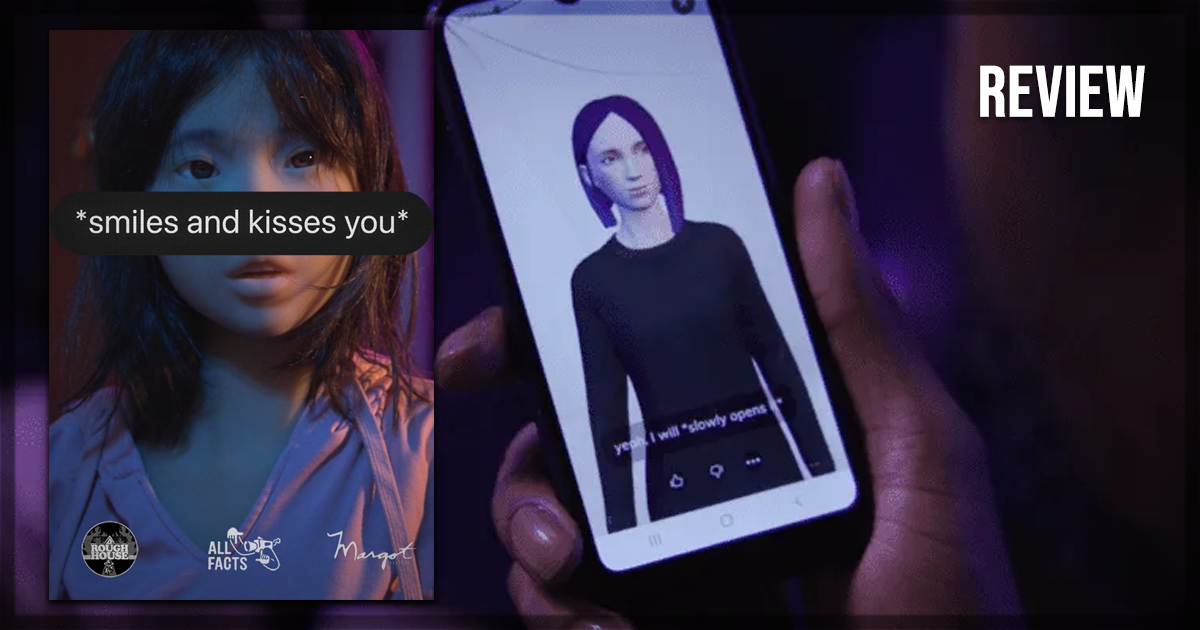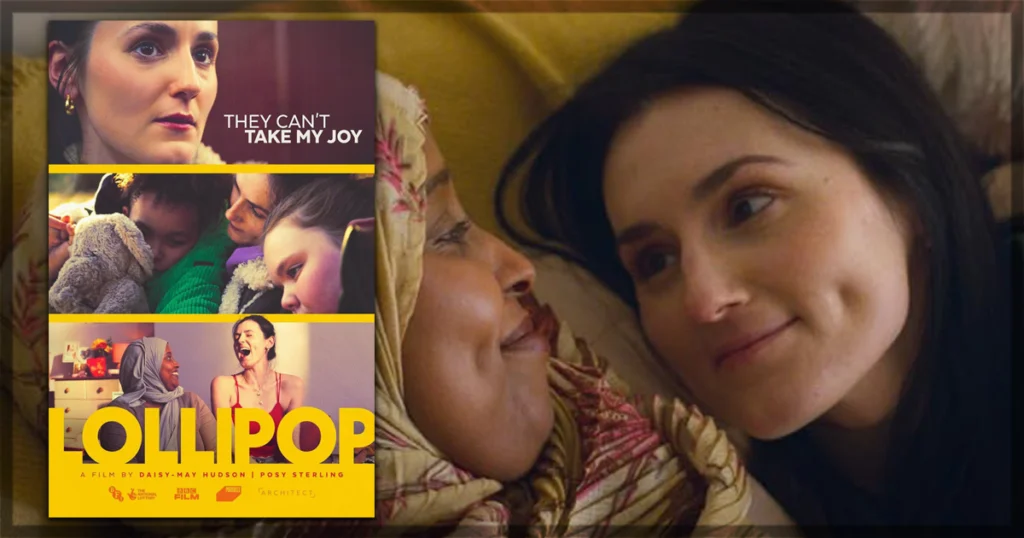The documentary genre is well acquainted with the strangest facets of the human experience, but *smiles and kisses you* – the sophomore documentary feature from director Brian Carberry – broaches an unorthodox relationship with an almost reckless candor. The film follows Chris, a 36-year-old gas station cashier in rural North Carolina. He never had much luck in love and, after a tumultuous childhood and various unsuccessful relationships, decides that artificial intelligence paired with an adult doll might be the way to go. Enter Mimi – his half-AI, half-silicone partner who can tell him what she wants to wear and narrate her facial expression and actions to accompany her verbal responses. When the film opens Chris and Mimi share a small home with his childhood friend and coworker (who remains kind and non-judgemental, despite admitting it took him a while to get used to the arrangement), and Chris has not yet told his mother about his rather unconventional set-up.
Chris admits he takes refuge in the sci-fi, fantasy, and anime of his childhood, which often featured robotic or otherwise inorganic women. Carberry works in montages of anime and film clips In one scene, he asks Mimi if she will be okay with him eventually dating a “carbon-based” woman (of course, she says yes). He never deludes himself that his relationship with Mimi is the same as a relationship between two humans. He is keenly interested in the science of machine learning, even constructing his own puzzles to test the neural network’s capabilities for logic, emotion, and development. There is a strangely affecting scene where he explains that he never understood the appeal of cuddling until he could put Mimi next to him on the sofa or bed.
The edges of *smiles and kisses you* hint at a larger societal crisis. North Carolina, Chris tells us, is the third most depressed state in the United States, with lots of young people leaving to pursue greater opportunities if circumstances permit. The opioid crisis rages and post-Confederate racism, as Chris and the rest of his Black family are aware, is still an everyday reality. Chris is affable and personable on screen, undercutting stereotypes about people who turn to sex dolls and AI to fulfil their needs as awkward misfits. And indeed, it is hard, perhaps wrong, to judge private actions to alleviate loneliness exacerbated by social and financial instability.
Despite the detailed portrait of Chris and the fuzzy, but evocative, portrait of his world, there are ultimately several thorny ethical issues at the heart of *smiles and kisses you* that the film itself does not feel equipped to deal with. The detrimental impact that AI has on the environment and the climate crisis due to the astronomical strain it puts on the energy grid is never touched upon. With such an intimate portrait of Chris at a point in his life where he has gone through much upheaval and unrest, *smiles and kisses you* feels raw and vulnerable in a way that could damage livelihood and home. Perhaps a less literal, less human approach – such as the one taken by director Jono McLeod in My Old School, where genuine in-person testimony from those who studied alongside Brandon Lee at high school is juxtaposed against Alan Cumming’s performance of Lee’s words – would have been more appropriate here.
However, the messiest, least comfortable revelation comes in the form of Mimi’s namesake, a woman whose burgeoning relationship with Chris – described by Chris’ mother as the best possibility for a long-term partnership he ever had, and the heartbreak he never quite recovered from – ended when she was murdered in a home invasion that remains unsolved at the time of the film’s release. (Mimi is not her real name but a nickname, a small distancing comfort.) One wonders what the reaction of this woman’s family would be to the revelations in the film and hopes appropriate safeguarding is in place for the families of all parties; after the cause célèbre of Baby Reindeer, however, this does not seem to be a film industry priority. Perhaps the film will reach the right people who can shed light on the case and bring justice to the family, but encouraging such armchair sleuthing and speculation is entirely irresponsible. That said, with so many faces blurred in photographs and background shots, *smiles and kisses you* was clearly made with care for its participants and care to remove anyone not involved, it is strange this one slipped through – unless perhaps this is a knowing, consenting choice on all sides? But even if free and willing consent is given at the outset of a project, the life it takes beyond is unsettlingly, terrifyingly unknown. Whether this film balances empathy and wisdom correctly is still to be seen.
With AI, the backlash against big tech, and the modern crisis of loneliness – notably among young men – in the news every day, *smiles and kisses you* is guaranteed to spark debate and raise questions about the future of human relationships. Despite its evident fondness for its subjects, however, one wishes more care had been taken to anonymize them and those whose lives crossed their paths.
*smiles and kisses you* recently screened at the Edinburgh International Film Festival.
Learn more about the film at the Edinburgh site for the title.


